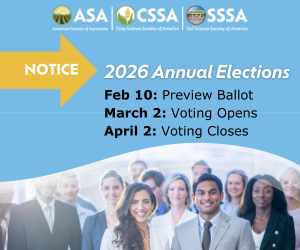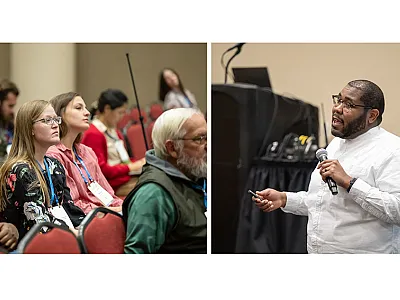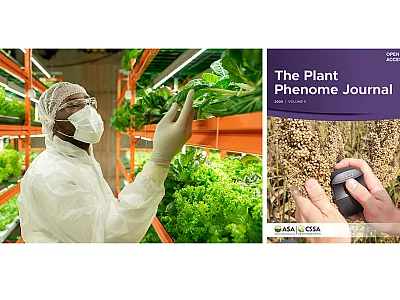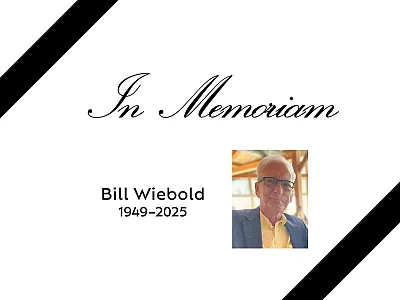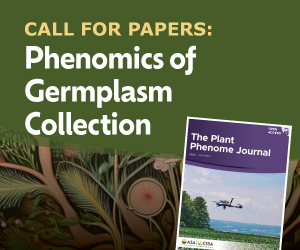Bridge Scholars: Leveraging Partnerships, Resources to Improve Diversity Within the Societies

The challenges of climate change, extreme weather, and increasing world hunger demand innovation in our agricultural science communities. Tackling these challenges will require an increasingly diverse workforce to bring novel approaches and the ability to ask questions from viewpoints that may not have been previously included in conversations (Anonymous, 2018). In 2020, a member survey was distributed throughout the Societies that found Black, Latino, and Native scholars made up 4, 8, and 0.3% of our Societies, respectively (soils.org/diversity). While these numbers are fairly similar to the demographics of Ph.D. recipients in agricultural sciences in 2021, there is still significant work required to develop an agricultural community where these groups are included at a minimum as their representation in the American population (12, 18, and 0.7%, respectively) (National Science Foundation, 2021).
Over the last three years, our Societies have increased efforts to bring awareness of diversity, equity, and inclusion (DEI) to members, such as introducing a Diversity Summit to the national meeting and a “Historical Perspectives on Diversity, Equity, and Inclusion” poster section. While these activities aid in educating our members on issues related to DEI, they do not aid in recruiting diverse scholars to our Societies. One way to address this is by building partnerships with other scientific societies that are specifically focused on diversity, including the Society for Advancing Chicanos/Hispanics and Native Americans in Science (SACNAS).
In 2021, a group of members from our Societies, led by Dr. Liz Gillispie and Dr. Karina Morales, received funding from the Agronomic Science Foundation to launch the Bridge Scholars Program. At its core, the Bridge Scholars Program serves as a partnership between SACNAS and the Societies with the dual purpose of recruiting increased ethnic diversity within the Societies
and exposing SACNAS members to our diverse career pathways. Over the last two years, the Bridge Scholars Program has sponsored 14 students to attend the ASA, CSSA, SSSA International Annual Meeting, representing 11 universities from across the country.
Helping Students Make the Most of the Annual Meeting
Bridge Scholars are given funding to cover registration for the Annual Meeting along with lodging, a $500 travel scholarship, and registration for the Graduate Student Leadership Conference. The Bridge Scholars Program helps equip students with the knowledge and skills to make the most of our Annual Meeting. Having both a cohort to navigate what can at times be an overwhelming experience supports students in feeling like they have a point of contact and community at the meeting. Connecting with fellow scholars and a network of mentors creates a unique career and professional development opportunity for students. While we are still in our first few years of the program, we aim to track the trajectory of our scholars to assess the long-term impact of the program and the scholar’s continued involvement in our Societies.
Reflecting upon his experience, 2022 recipient Charles Louis Bush from Oglala Lakota College said, “From the intense green, lush mountains of Puerto Rico; to the concrete jungle of Baltimore, Maryland, the ASA–CSSA–SSSA meeting had such a great impact on me as a 2022 Bridge Scholars recipient. It helped me see connections within networks I would not have seen had I not been a Bridge Scholar. With more determination, it helped me to keep making the right decisions when it comes to advancing my higher education after the completion of my bachelors of science... I would greatly encourage anyone from any background to apply as this is an amazing opportunity to get to know more individuals from the various Societies as we gathered as one.”
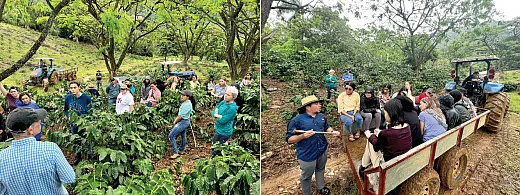
Representing Our Societies at National Diversity in STEM Conference
In addition to providing financial scholarships, the Societies were able to expand activities related to agriculture at the SACNAS National Diversity in STEM Conference. These activities included (i) an exhibit highlighting career and internship opportunities available to students; (ii) a scientific session covering the breadth of our three Societies entitled, “From Water to Wine: Implementing Innovative Techniques in Agricultural and Soil Sustainability,” and (iii) a field trip to Hacienda San Pedro where students had the opportunity to learn the full breadth of coffee production, including soil composition, agronomic and harvesting processes, desired crop traits, and the post-harvest processing required to make a cup of coffee.
We are thrilled to have secured funding for the third annual Bridge Scholars Program in partnership with SACNAS. With every new cohort, we bring unique and inspiring scholars into the fold of our Societies and support the development of beginning scholars. Building the diversity of students and scholars in our Societies will lead to the generation of more robust and innovative research that will advance all fields of science represented by our Societies. Creating these opportunities for community building and mentorship will be crucial for building a more diverse, equitable, and inclusive scientific community! We encourage anyone interested in learning more to visit agronomy.org/awards/view/225/ or email Dr. Karina Morales at kmorales3@wisc.edu.
References
Anonymous. (2018). Science benefits from diversity. Nature, 558, 5. https://doi.org/10.1038/d41586-018-05326-3
National Science Foundation. (2021). Doctorate recipients from U.S. universities. https://ncses.nsf.gov/pubs/nsf23300/
Text © . The authors. CC BY-NC-ND 4.0. Except where otherwise noted, images are subject to copyright. Any reuse without express permission from the copyright owner is prohibited.



